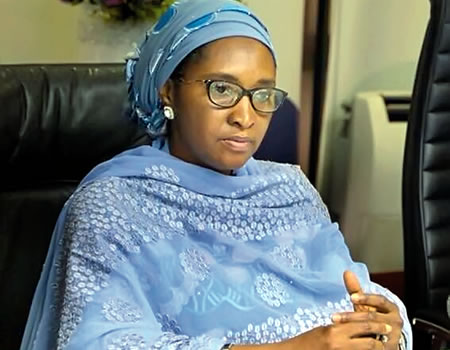As Federal Government’s position on the proposed fuel subsidy removal continues to elicit reactions from Nigerians and other stakeholders globally, analysts have cautioned the government on the need to critically consider the cost-benefit implications for the citizenry and sustainable growth of the economy before implementing the contentious fiscal measure.
Reacting to the fiscal policy announcement indicating the suspension of the implementation by the Minister of Finance, Budget and National Planning, Mrs. Zainab Ahmed, shortly after the National Economic Council (NEC) meeting held on Thursday in Abuja, a seasoned financial systems analyst and former President of the Institute of Chartered Accountants of Nigeria (ICAN), Mrs. Comfort Eyitayo, said that the planned suspension of fuel subsidy by the Federal Government had several implications for the country’s economy and its citizens. Some of these implications include:
According to her, the fiscal measure will result in increase in fuel prices because the Nigerian National Petroleum Corporation (NNPC) and other marketers of petroleum products would now be free to set their prices (which will be high) with possible ripple effect on the cost of goods and services in the country, including increase in transportation.
Eyitayo, who is also chartered tax practitioner, pointed out that the increase in fuel prices with the attendance consequences cause increase in the country’s inflation rate hence increase in hardship for the citizenry.
She clarified: “With the cost of living increasing due to increases in the price of goods and services, standard of living will further fall.
“Possibility of fuel scarcity may follow and long queue will be back at our filling stations which will result in the loss of man hour/productivity (reduction in gross domestic product”, the former ICAN President added.
Even then, she said that there was a positive aspect on the fiscal measure as “the suspension of the subsidy, government will save a considerable amount of money, which can be channeled towards other developmental projects”
In his remarks, the President of the National Association of Nigerian Traders (NANTS), Barr. Ken Ukaoha, explained that too many Nigerians, the suspension of the fuel subsidy removal was a good development as it will calm down the nerves and help them sleep for some days without heart failure.
He,however, pointed out that the best news would have been to see that we are now refining petrol to the fullest capacity in all the refineries in the country as this was the promise of the administration that is preparing its removal.
Ukaoha lamented that eight years after the country remained stagnant, if not worse off, with trillions spent and lavished on the importation of fuel all in the name of subsidy.
Describing the continued importation of fuel subsidy as a national shame, the NANTS President predicted that discussion on this same subject matter would still be opened very soon because the President-elect vowed prior to elections that he would remove the subsidy.
He said: “Perhaps the outgoing administration wants to leave Nigerians and their fate in the hands of the incoming, akin to ‘washing their hands off’ like Pontus Pilate. We need to be decisive as a country in terms of leadership to stamp out corruption, which is the main reason for the entire brouhaha.”
Also commenting on the fuel subsidy removal suspension by the government, the Director/Chief Executive Officer of the Centre for the Promotion of Private Enterprise (CPPE), a leading organized private sector advocacy group in Nigeria, Dr. Muda Yusuf, expressed the view that all matters relating to petrol subsidy removal should be left for the incoming administration to handle.
According to him, this should be the default position since the current government has announced a budgetary provision for fuel subsidy up till June 2023 and that this aligns with the position of the Petroleum industry Act as amended.
Yusuf, who is also a former Director-General of the Lagos Chamber of Commerce and Industry, (LCCI) pointed out that rather than stir another round of controversy and confusion, the matter ought to be left for the new administration, stressing that the NEC announcement is really unnecessary.
He further clarified: “My expectation is that the new administration should have its strategy of managing the policy transition. This should not be preempted by the current administration. The National Economic Council should avoid making policy pronouncement that may create problems for the new administration.
“I also expect that some level of informal consultation should have commenced between the transition team of the incoming administration and key stakeholders on the matter.
“The APC had categorically stated that it would remove petrol subsidy on assumption of office although it had not unveiled its strategy of doing so”, the foremost economic analyst added.






